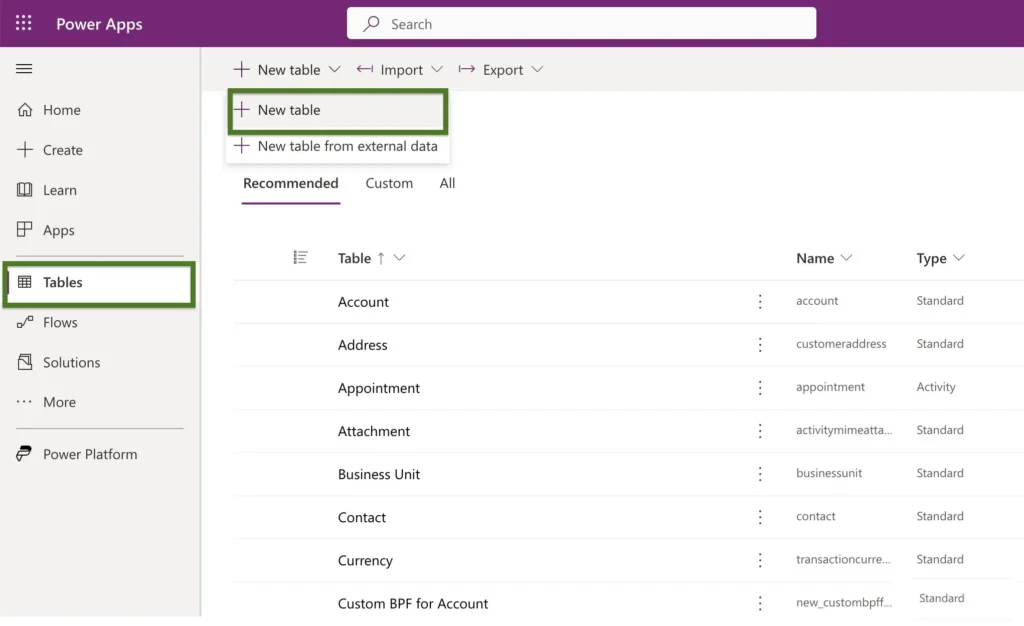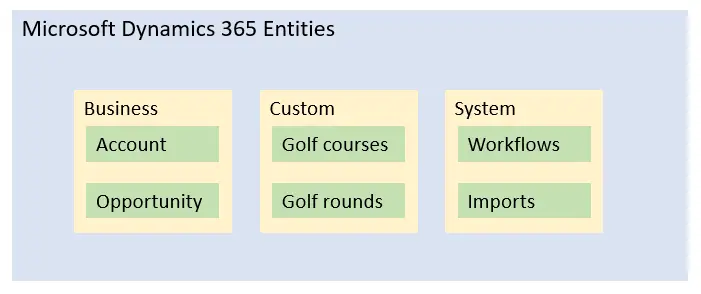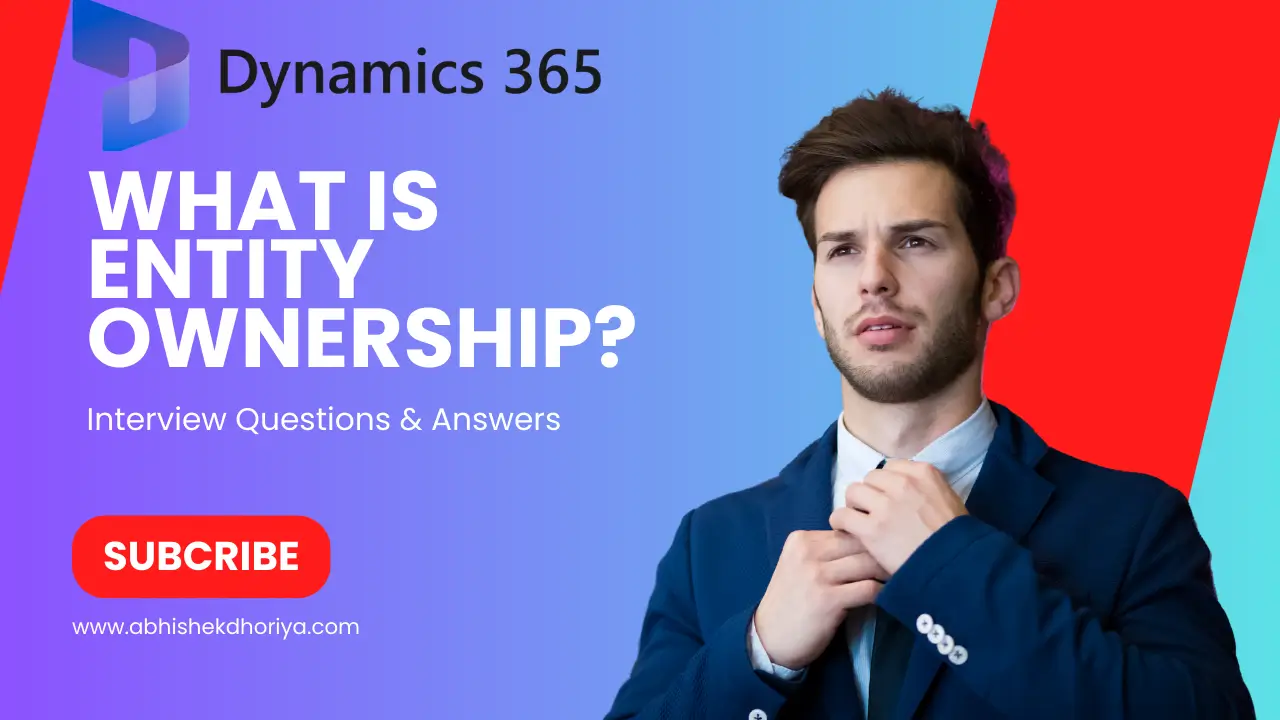Entity ownership in Dynamics 365 is a pivotal concept for managing data and access within an organization. Whether you are new to Dynamics 365 or preparing for an interview, understanding entity ownership can enhance your ability to configure and utilize this powerful CRM tool effectively. This article provides a detailed, yet easy-to-understand, exploration of entity ownership in Dynamics 365, covering its types, examples, and common interview questions.
Microsoft Dynamics 365, a revolutionary cloud-based solution, is best known for its ability to seamlessly integrate Customer Relationship Management (CRM) and Enterprise Resource Planning (ERP). At the heart of this system are entities. To help you gain a deeper understanding, we delve into the essence of entity ownership, the types of entities, and the pertinent aspects of Dynamics 365 entities.
What is an Entity in Dynamics 365?
In the Dynamics 365 realm, an entity often bears the resemblance to a database table, and its various attributes equating to the columns of that table. Each entity holds data for particular functionalities like Contacts or Accounts, and entity records resemble the rows in the table.

Types of Entities in Dynamics 365
Entities in Dynamics 365 are like tables in a database. They store data and have various attributes (fields). There are several types of entities:

- System Entities: Pre-defined by Microsoft and are integral to the functioning of Dynamics 365.
- Custom Entities: Created by users to fit specific business needs.
- OOB (Out-of-the-Box) Business Entities: Entities that come standard with Dynamics 365 but can be customized.
What is Entity Ownership in Dynamics 365?
Entity ownership in Dynamics 365 defines how data within an entity is owned and managed. It determines who has access to data, how it’s shared, and the security roles required for various operations. Essentially, entity ownership helps in organizing and protecting data within the CRM system.
Entity Ownership in Microsoft Dynamics CRM 365
At its core, entity ownership in Dynamics 365 refers to the level of access and control that users or teams have over an entity. This can significantly influence data confidentiality, interaction, and reporting. The two types of entity ownership in Dynamics 365 are User or Team Owned and Organization Owned.
Types of Entity Ownership in Microsoft Dynamics 365
In Dynamics 365, most entities (including custom entities) are owned by the organization, by a user, or a team. Some business entities do not have an owner, where the ownership is defined by its parent entity (e.g., discount). The type of ownership determines some of the operations that can be performed on a record. Ownership for an entity is defined in the metadata property OwnershipType.
| Ownership Type | Description |
|---|---|
| Organization Owned | Contains data involving something that belongs to or can be viewed by the whole organization. These entities have an attribute named organizationid. |
| Business Owned | Entities that belong to a business unit. These entities have an attribute named owningbusinessunit. |
| User or Team Owned | Assigned to a user or to a team. These entities contain data that relates to customers, such as accounts or contacts. These entities have attributes named owningteam and owninguser. |
| None | These entities are not owned by another entity. |
Comparison of Organization Owned and User/Team Owned Entities in Dynamics 365
| Aspect | Organization Owned | User/Team Owned |
|---|---|---|
| Data Access | Can be viewed by the whole organization | Access is determined by the security roles of the user or team owning the record |
| Assignment | Cannot be assigned or shared | Can be assigned to a user or team |
| Attributes | Have an attribute named organizationid | Have attributes named owningteam and owninguser |
| User Access Levels | Users can have either Full or None access to organization-owned entity records | Users can have None, User Level, Business Unit level, Parent-child business unit level, or Organization level access to such entity records |
Entity Ownership in Dynamics 365: Examples
To better understand entity ownership, let’s consider a few examples:
- Contacts Entity: Usually user/team-owned, allowing individual salespeople to manage their contacts.
- Product Entity: Can be organization-owned to enable company-wide visibility and management of customer accounts.
System Entities vs. OOB Entities in Dynamics 365
System Entities are default entities that cannot be deleted, mainly because of their critical role in managing how Dynamics 365 operates. On the other hand, Out of the Box (OOB) Entities are pre-configured entities ready for use, and they comprise both system and customizable entities.
Dynamics 365 Entities List
Here’s a brief list of some common entities in Dynamics 365:
| Entity | Description |
|---|---|
| Account | Stores company data and relationships |
| Contact | Manages individual customer or stakeholder information |
| Opportunity | Tracks potential sales or deals |
| Lead | Stores prospective customer information |
| Case | Manages customer service requests and issues |
| Task | Tracks to-do items and activities |
Entity Ownership Dynamics CRM 365 Interview Questions
In this section, we’ll explore some key interview questions and answers related to entity ownership in Dynamics 365. For a visual explanation, check out this video on Entity Ownership in Microsoft Dynamics 365.
Explain What is Entity Ownership?
Entity ownership determines how records are owned and managed, impacting access, security, and data organization.
How many different types of Entity ownership are available in Dynamics 365?
There are three main types: Organization-owned, User/Team-owned, and None-owned.
Where do you define/Specify the Entity Ownership?
Ownership for an entity is defined in the metadata property OwnershipType.
What is the difference between user/team owned entities and organization owned entities?
User/team owned entities are managed by individuals or teams with specific security roles, whereas organization-owned entities are managed and accessible across the organization, often with broader visibility.
FAQs about Microsoft Dynamics 365 Entity Ownership
1. What are the different types of users in Dynamics 365?
– System Administrator: Complete access to the system.
– System Customizer: Ability to modify the system.
– Manager: Can view records owned by team members.
– Salesperson: Can only see owned records.
2. What are the three ownership models?
– Organization: All users can access
– Business Unit: All users in the business unit can access
– User/Team: Only the owner (individual or team) has access
3. What are the different types of relationships in D365?
– One-to-Many (1:N)– One entity record associates with multiple entity records.
– Many-to-One (N:1)– Multiple entity records associate with one entity record.
– Many-to-Many (N:N)– Multiple records of one entity associate with multiple records of another entity.
Conclusion
To conclude, understanding Entity ownership in Dynamics 365 is a critical aspect of effective CRM. Entity ownership in Dynamics 365 is a foundational concept that influences how data is managed, secured, and accessed. By understanding the different types of entities and their ownership models, users can better configure and use Dynamics 365 to meet their organizational needs. Whether preparing for an interview or enhancing your CRM skills, mastering entity ownership is crucial.
Not only does it narrate who has control over what data, but it also highlights necessary permissions and access details across the system. Thus, it plays a crucial role in defining how your organization utilizes Dynamics 365. But remember, every organization is unique – so tailor your entity ownerships to best serve your business operations and objectives.
#MSFTAdvocate #AbhishekDhoriya #LearnWithAbhishekDhoriya #DynamixAcademy

2 thoughts on “Entity Ownership in Dynamics 365 CRM Interview Questions and Answers”